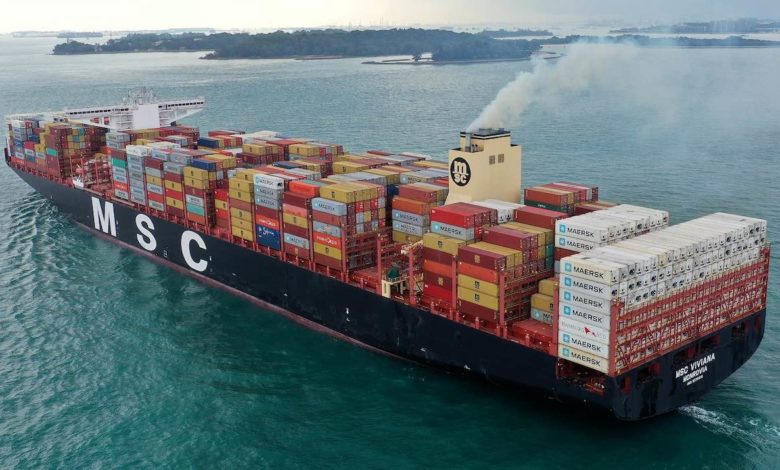MSC partners with Shell on path towards decarbonisation

Mediterranean Shipping Company (MSC), the world’s second largest containerline, has signed a memorandum of understanding with energy major Shell to help accelerate shipping decarbonisation.
The companies plan to develop a range of safe, sustainable and competitive technologies that can reduce emissions from existing assets and help to enable a net-zero emissions future for shipping.
Shell and MSC have worked together over the last 10 years on projects, including bunkering biofuels and trialling very and ultra-low sulphur fuels.
MSC and Shell technical and commercial teams will collaborate to develop and deploy net-zero solutions such as zero-emission fuels of the future and the technologies that will enable them, including fuel cells, with the ambition of contributing towards a zero-carbon flexi-fuel concept vessel. They will also work together on energy efficiency technologies, including digital services and platforms.
The partners continue to envisage a range of fuel solutions on the route to a net zero future and are also exploring options such as hydrogen-derived fuels and the use of methanol as a marine fuel. Both companies each have been exploring the significant potential benefits of progressing from fossil-based liquefied natural gas (LNG) to bio-LNG or synthetic variants.
Speaking last month at a conference in Antwerp, Søren Toft, the CEO of MSC, said: “The big decarbonisation challenge will only be solved when we have carbon neutral fuels available at scale.”
